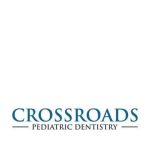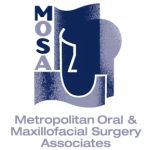The Importance of Diet in Maintaining Good Oral Hygiene
Oral hygiene plays a crucial role in maintaining our overall health. Many of us are aware of the need to brush and floss our teeth regularly, but what about the impact of our diet? Diet is often overlooked when it comes to oral care, yet it can significantly influence the health of our teeth and gums. From preventing cavities to supporting gum health, what we eat has a direct effect on the condition of our mouth. In this article, I’ll explore the relationship between diet and oral hygiene, share some surprising facts, and provide practical tips for keeping your mouth in great shape through nutrition.
1. How Diet Affects Oral Health
Our diet directly impacts the health of our teeth and gums. The foods we eat can either contribute to the buildup of plaque and cavities or help to protect our teeth from decay. When we consume sugary or acidic foods, they provide a food source for harmful bacteria in our mouths. These bacteria then produce acids that can erode the enamel of our teeth and lead to cavities.
On the other hand, a diet rich in nutrient-dense foods can help to strengthen the enamel, reduce inflammation, and maintain healthy gums. Foods that are high in calcium, like dairy products, and those rich in vitamin C, such as fruits and vegetables, can provide the essential nutrients for healthy teeth and gums. These nutrients help to protect against gum disease, reduce the risk of cavities, and promote overall oral health.
2. The Role of Sugar and Acidic Foods in Cavities
It’s no secret that sugar can lead to cavities. When we eat sugary foods, the bacteria in our mouth break down the sugar, producing acids that attack tooth enamel. This process, known as demineralization, weakens the enamel, leading to the formation of cavities. The more sugar we consume, the more acid is produced, which can eventually lead to tooth decay.
Acidic foods, such as citrus fruits and soft drinks, can also contribute to enamel erosion. While these foods are rich in vitamins and nutrients, their acidity can weaken the enamel over time. If you’re a fan of citrus or enjoy a refreshing soda, it’s important to consume them in moderation and rinse your mouth with water afterward to reduce the risk of enamel erosion.
3. Healthy Foods for Strong Teeth
Luckily, not all foods are harmful to our teeth. In fact, some foods can actually promote oral health by providing the essential nutrients needed to keep our teeth strong and our gums healthy. Here are some of the best foods to include in your diet for optimal oral hygiene:
- Cheese: Cheese is a great source of calcium and phosphates, which help to remineralize tooth enamel and neutralize acids in the mouth.
- Leafy Greens: Vegetables like spinach and kale are high in vitamins and minerals that promote gum health, and their fibrous texture helps to scrub the teeth as you chew.
- Apples: Apples are not only delicious but also help to stimulate saliva production, which helps to wash away food particles and neutralize acids in the mouth.
- Carrots and Celery: Crunchy vegetables like carrots and celery act as natural toothbrushes, helping to remove plaque and food debris from teeth while stimulating saliva production.
- Yogurt: Yogurt is a great source of probiotics, which can help to balance the bacteria in your mouth and reduce the risk of gum disease and cavities.
4. The Impact of Hydration on Oral Health
Hydration is just as important for oral health as it is for the rest of the body. Drinking plenty of water throughout the day helps to rinse away food particles and bacteria from the mouth, reducing the risk of plaque buildup and cavities. Water also helps to keep the tissues in the mouth hydrated, promoting healthy gums and preventing dry mouth, a condition that can lead to tooth decay.
If you're looking to keep your mouth clean and fresh, water should be your go-to beverage. Avoid sugary drinks like soda and energy drinks, which can contribute to tooth decay. Opt for water or unsweetened tea to stay hydrated and maintain good oral hygiene.
5. The Connection Between Diet and Gum Disease
Gum disease is a serious condition that can lead to tooth loss if left untreated. While poor oral hygiene is a major cause of gum disease, diet can also play a significant role in its development. A diet high in processed foods, sugar, and refined carbohydrates can increase inflammation in the gums, making them more susceptible to infection and disease.
On the other hand, a diet rich in anti-inflammatory foods, such as leafy greens, nuts, seeds, and fish, can help to protect against gum disease. Omega-3 fatty acids found in fish like salmon and mackerel have been shown to reduce inflammation in the body, including the gums. Incorporating these foods into your diet can help to support gum health and reduce the risk of gum disease.
6. Oral Hygiene Habits to Complement a Healthy Diet
While diet plays a crucial role in maintaining good oral hygiene, it’s important to remember that diet alone is not enough. Proper oral hygiene habits, such as brushing twice a day, flossing daily, and visiting the dentist regularly, are essential to keep your teeth and gums healthy.
Additionally, consider using a fluoride toothpaste, as fluoride helps to strengthen tooth enamel and protect against cavities. Don’t forget to replace your toothbrush every three to four months to ensure effective cleaning. Regular dental checkups are also important for catching any potential issues early and ensuring that your mouth stays healthy for years to come.
7. Real-Life Story: A Change in Diet Transformed My Oral Health
To make this all more relatable, let me share a personal story. A few years ago, I noticed that my gums were bleeding when I brushed my teeth, and I was experiencing increased tooth sensitivity. I visited my dentist, who suggested that I make some changes to my diet. I was eating a lot of processed foods, sugary snacks, and acidic drinks, which were contributing to my oral issues.
After switching to a more balanced diet, incorporating more fruits, vegetables, and whole grains, I noticed a significant improvement in my oral health. My gums stopped bleeding, and the sensitivity in my teeth decreased. The lesson I learned was that our diet truly has a profound effect on the health of our teeth and gums, and a few simple changes can make a world of difference.
If you’re struggling with oral health issues, consider taking a closer look at your diet. Small changes, such as reducing sugar intake and incorporating more nutrient-rich foods, can make a significant difference in the health of your mouth. With the right diet and oral care habits, you can keep your smile healthy and bright for years to come.
For more information on how to maintain excellent oral health, feel free to visit Dentistry Toothtruth, where we provide the best dental services and expert advice tailored to your needs.







 Eastridge Family Dental, P.C.4.0 (267 review)
Eastridge Family Dental, P.C.4.0 (267 review) Pediatric Dental Specialists4.0 (302 review)
Pediatric Dental Specialists4.0 (302 review) Crossroads Pediatric Dentistry0.0 (0 review)
Crossroads Pediatric Dentistry0.0 (0 review) Metropolitan Oral and Maxillofacial Surgery Associates4.0 (365 review)
Metropolitan Oral and Maxillofacial Surgery Associates4.0 (365 review) Pristine Dental4.0 (237 review)
Pristine Dental4.0 (237 review) Family Dentistry of Westford4.0 (19 review)
Family Dentistry of Westford4.0 (19 review) The Importance of Oral Health Education During Pregnancy for a Healthy Pregnancy
The Importance of Oral Health Education During Pregnancy for a Healthy Pregnancy Best Tips for Brushing Your Teeth Properly for Healthy Gums: Essential Techniques for Oral Health
Best Tips for Brushing Your Teeth Properly for Healthy Gums: Essential Techniques for Oral Health Why Skipping Dental Checkups Can Lead to Bigger Oral Health Problems
Why Skipping Dental Checkups Can Lead to Bigger Oral Health Problems Advantages of Porcelain Dental Restorations
Advantages of Porcelain Dental Restorations How Can Diabetes Cause Tooth and Gum Problems? Preventing and Managing Oral Health Issues
How Can Diabetes Cause Tooth and Gum Problems? Preventing and Managing Oral Health Issues Healthy Habits for Promoting Good Oral Health and Hygiene: Tips for a Healthy Smile
Healthy Habits for Promoting Good Oral Health and Hygiene: Tips for a Healthy Smile